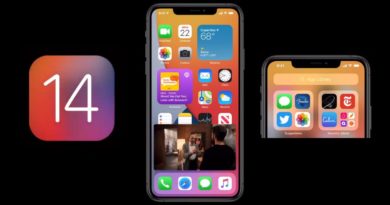Samsung Galaxy S21 benchmarks just leaked — and we have bad news
Benchmarks for what’s thought to be the Samsung Galaxy S21 Plus have leaked, and they show how Samsung’s next flagship phone will still be behind the iPhone 12 when it comes to performance.
In a Geekbench 5 listing, spotted by SamMobile, a phone with the model number SM-G996U is shown with the Snapdragon 875 chipset — Qualcomm’s next flagship chip — 8GB of RAM and Android 11. The model number tracks with the SM-G986 model number of the Galaxy S20 Plus, so it can be surmised that the phone in the benchmark is the Galaxy S21.
The Galaxy S21 with its Snapdragon 875 delivers a single-core score of 1,120 and rakes in 3,319 on the multi-core test. These are decent figures, but the iPhone 12 with its A14 Bionic delivers a higher single-core score of 1,593 and a superior multi-core score of 3,859.
It has long been the case that the A-series chips in Apple’s iPhones beat equivalent Qualcomm and Samsung Exynos chips. But we’d have hoped the Galaxy S21 would come in a lot closer to the iPhone 12.
At least the Galaxy S21 shows a marked improvement over the Galaxy S20 Plus and its Snapdragon 865 chip. That phone delivered a Geekbench 5 single-core score of 811 and a multi-core score of 3,076.

There are a few caveats to seed here. The first is that it’s still early days for the Snapdragon 875, which hasn’t even been officially announced by Qualcomm yet. And that means more optimization could be had out of the chip. Furthermore, Samsung could do more on the software and cooling side of its Galaxy S21 to push the chip even further.
The second caveat is that this phone has 8GB of RAM, and it’s likely that Samsung will offer at least one configuration of the Galaxy S21 with 12GB of RAM. That should result in higher scores.
Samsung Galaxy S21: Snapdragon vs Exynos
These benchmarks also hint at another deflating narrative for Samsung phone fans. Usually the U.S. versions of the Samsung S and Note series get access to the Snapdragon chips, whereas the U.K. and Europe have to make do with handsets that use Samsung’s Exynos chips.

In isolation the Exynos processors are far from bad. But in comparison to the Qualcomm chips, they fall behind, offering less performance and power efficiency.
So if this Geekbench 5 result for the Snapdragon 875 is a bit disappointing, going by Samsung’s previous form, we could posit that the Exynos chip in U.K. versions of the Galaxy S21 could be even less impressive.
A previous Geekbench 5 leak for the Samsung Galaxy S21 with the Exynos 2100 saw it deliver a single-core score of 1,038 and a multi-core result of 3,080. So the Exynos 2100 looks to be slower than the Snapdragon 875; at least when used in the Galaxy S21.
That being said, rumors so far have suggested the Galaxy S21 will come with the Exynos 2100 (previously thought to be called the Exynos 1000) chipset. Built on a 5-nanometer process node, leaks have it down to deliver a 3x improvement over the Snapdragon 865. And graphics improvements should also be on the cards, as the Exynos 2100 could use a graphics accelerator built in partnership with AMD.
So if those rumors come to fruition, we could finally see the scales tip in favor of getting a Galaxy S21 with an Exynos chip over one with a Snapdragon chipset. As it stands, we’ve only got rumors and somewhat inconclusive leaked benchmarks to go by.
We’re not expecting to see a huge change in design over the Galaxy S20. But the Galaxy S21 Ultra could potentially sport two telephoto cameras – one with a 3x zoom the other with a 10x zoom. The Galaxy S21 Ultra could also come with an LTPO display panel allowing its refresh rate to be changed dynamically to help preserve battery consumption.
Time will tell which rumors end up being accurate. But with the Galaxy S21 set to be revealed as early as January 2021, we’ve not got long to wait.


